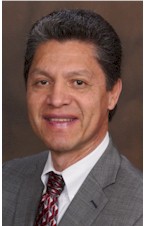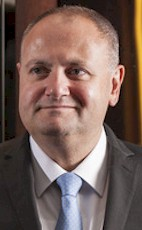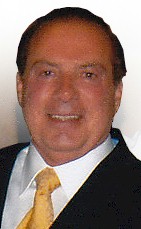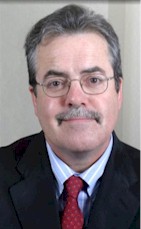
Traditionally, the human resource department administers five key areas within a hotel operation - compliance, compensation and benefits, organizational dynamics, selection and retention, and training and development. However, HR professionals are also presently involved in culture-building activities, as well as implementing new employee on-boarding practices and engagement initiatives. As a result, HR professionals have been elevated to senior leadership status, creating value and profit within their organization. Still, they continue to face some intractable issues, including a shrinking talent pool and the need to recruit top-notch employees who are empowered to provide outstanding customer service. In order to attract top-tier talent, one option is to take advantage of recruitment opportunities offered through colleges and universities, especially if they have a hospitality major. This pool of prospective employees is likely to be better educated and more enthusiastic than walk-in hires. Also, once hired, there could be additional training and development opportunities that stem from an association with a college or university. Continuing education courses, business conferences, seminars and online instruction - all can be a valuable source of employee development opportunities. In addition to meeting recruitment demands in the present, HR professionals must also be forward-thinking, anticipating the skills that will be needed in the future to meet guest expectations. One such skill that is becoming increasingly valued is “resilience”, the ability to “go with the flow” and not become overwhelmed by the disruptive influences of change and reinvention. In an era of transition—new technologies, expanding markets, consolidation of brands and businesses, and modifications in people's values and lifestyles - the capacity to remain flexible, nimble and resilient is a valuable skill to possess. The March Hotel Business Review will examine some of the strategies that HR professionals are employing to ensure that their hotel operations continue to thrive.




 Traditionally, the human resource department administers five key areas within a hotel operation - compliance, compensation and benefits, organizational dynamics, selection and retention, and training and development. However, HR professionals are also presently involved in culture-building activities, as well as implementing new employee on-boarding practices and engagement initiatives. As a result, HR professionals have been elevated to senior leadership status, creating value and profit within their organization. Still, they continue to face some intractable issues, including a shrinking talent pool and the need to recruit top-notch employees who are empowered to provide outstanding customer service. In order to attract top-tier talent, one option is to take advantage of recruitment opportunities offered through colleges and universities, especially if they have a hospitality major. This pool of prospective employees is likely to be better educated and more enthusiastic than walk-in hires. Also, once hired, there could be additional training and development opportunities that stem from an association with a college or university. Continuing education courses, business conferences, seminars and online instruction - all can be a valuable source of employee development opportunities. In addition to meeting recruitment demands in the present, HR professionals must also be forward-thinking, anticipating the skills that will be needed in the future to meet guest expectations. One such skill that is becoming increasingly valued is “resilience”, the ability to “go with the flow” and not become overwhelmed by the disruptive influences of change and reinvention. In an era of transition—new technologies, expanding markets, consolidation of brands and businesses, and modifications in people's values and lifestyles - the capacity to remain flexible, nimble and resilient is a valuable skill to possess. The March Hotel Business Review will examine some of the strategies that HR professionals are employing to ensure that their hotel operations continue to thrive.
Traditionally, the human resource department administers five key areas within a hotel operation - compliance, compensation and benefits, organizational dynamics, selection and retention, and training and development. However, HR professionals are also presently involved in culture-building activities, as well as implementing new employee on-boarding practices and engagement initiatives. As a result, HR professionals have been elevated to senior leadership status, creating value and profit within their organization. Still, they continue to face some intractable issues, including a shrinking talent pool and the need to recruit top-notch employees who are empowered to provide outstanding customer service. In order to attract top-tier talent, one option is to take advantage of recruitment opportunities offered through colleges and universities, especially if they have a hospitality major. This pool of prospective employees is likely to be better educated and more enthusiastic than walk-in hires. Also, once hired, there could be additional training and development opportunities that stem from an association with a college or university. Continuing education courses, business conferences, seminars and online instruction - all can be a valuable source of employee development opportunities. In addition to meeting recruitment demands in the present, HR professionals must also be forward-thinking, anticipating the skills that will be needed in the future to meet guest expectations. One such skill that is becoming increasingly valued is “resilience”, the ability to “go with the flow” and not become overwhelmed by the disruptive influences of change and reinvention. In an era of transition—new technologies, expanding markets, consolidation of brands and businesses, and modifications in people's values and lifestyles - the capacity to remain flexible, nimble and resilient is a valuable skill to possess. The March Hotel Business Review will examine some of the strategies that HR professionals are employing to ensure that their hotel operations continue to thrive.






















